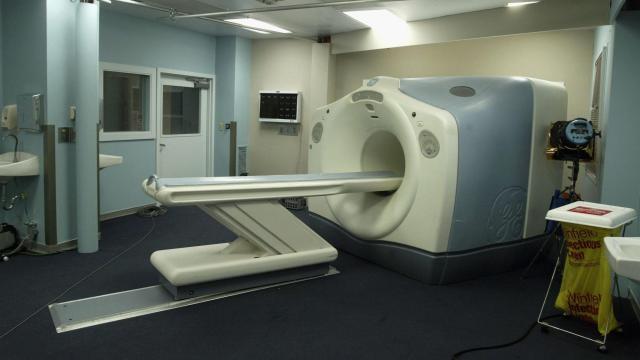Parts of the medical world are continuing to rebel against Aduhelm, the controversial treatment developed by Biogen and recently approved for Alzheimer’s disease by the U.S. Food and Drug Administration. This week, two major medical centres in the U.S. said that they would not treat their patients with the drug.
The Cleveland Clinic, as first reported by the New York Times yesterday, assembled a formal panel of experts to review the evidence behind aducanumab, the active ingredient of Aduhelm, before coming to their decision.
“Based on the current data regarding its safety and efficacy, we have decided not to carry aducanumab at this time. However, we support continued research in this area, and when additional data become available, we will re-evaluate this medication for use in our patients,” the Clinic said in a statement sent to Gizmodo. Doctors employed there may still prescribe the drug, given once a month through IV infusion, to patients, but patients would have to receive it somewhere else.
In a later update to the NYT article, Sam Gandy, director of the Mount Sinai Centre for Cognitive Health, said the centre would not give the drug to its patients — at least not until the Office of the Inspector General, a watchdog government agency, has a say.
“The FDA’s approval of Aduhelm has raised serious concerns and questions by clinicians, patients, and caregivers and a cautious approach is required. Mount Sinai Health System will not administer Aduhelm until the outcome of the Inspector General’s investigation of Biogen is complete,” a representative for Mount Sinai confirmed in a statement sent to Gizmodo.
Calls for the Inspector General to investigate the approval have intensified in recent weeks, following Stat News’s reporting of a close relationship between Biogen and certain FDA officials during the process. Days after House Representative Katie Porter sent a formal request for the investigation last week, the FDA’s interim chief, Janet Woodcock, released her own open letter to the Inspector General asking for the same. At this point, however, an investigation has not been announced.
The crux of the controversy surrounding Aduhelm comes down to the mixed data on its effectiveness, as well as the unusual steps the FDA took to approve the drug, using a process known as accelerated approval. Rather than saying that the drug was shown to at least slow down the progression of Alzheimer’s in clinical trials, the FDA instead argued that it would probably work, given other surrogate endpoints (in this case, reduction of amyloid plaque in patients’ brains). Under the current rules, Biogen will have up to nine years to conduct additional research that can actually demonstrate a real benefit to patients.
While FDA officials continue to defend the approval, the agency has backpedaled somewhat. Last Thursday, the FDA made formal changes to its labelling of the drug, now recommending that doctors only prescribe it for people with early Alzheimer’s disease, rather than all Alzheimer’s patients.
The change should limit medical coverage and availability of the drug, but it’s still likely to cost a pretty penny for healthcare systems, given its list price of $US56,000 ($75,426) a year. A recent analysis by the Kaiser Family Foundation estimated that Medicaid alone may spend somewhere between $US720 ($970) million to over $US2 ($3) billion annually for Aduhelm, depending on how many eligible patients begin using it. The financial burden for Medicare, which covers most older adults, may be even greater, though the exact fate of its coverage status for the drug isn’t clear yet.
This week, the U.S. Centres for Medicare and Medicaid Services announced it would conduct a formal evaluation of if and how Medicare would cover Aduhelm, one that may not conclude until early next year (in the meantime, coverage will be determined on an individual basis)
